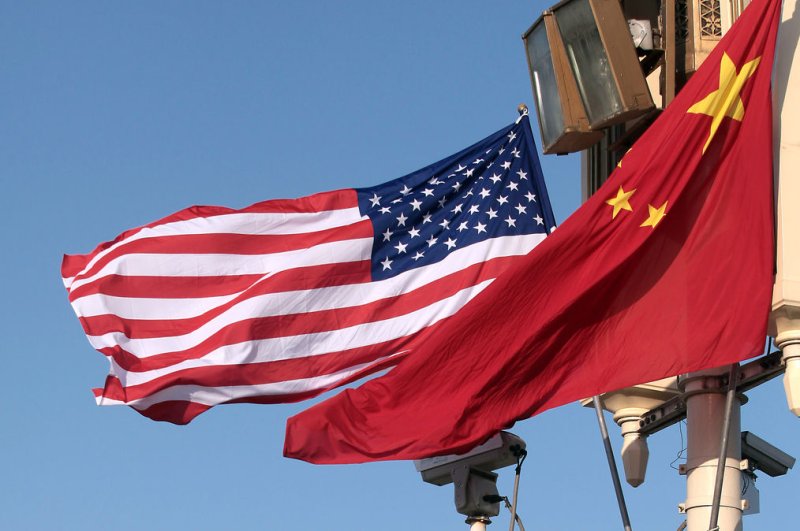United States and Chinese flags fly over Tiananmen Square in Beijing. A Chinese negotiator said Tuesday the U.S. administration is holding a "knife" at the neck of Beijing in the ongoing trade conflict. File Photo by Stephen Shaver/UPI |
License Photo
Sept. 25 (UPI) -- Chinese officials said Tuesday the United States must remove the "knife at its neck" before the trade war that's resulted in billions of dollars in tariffs can be settled.
Vice Minister of Commerce Wang Shouwen, who led the last round of trade talks for the Chinese delegation to Washington last month, made the remark Tuesday, adding that Beijing won't proceed with high-level trade talks this month.
China has criticized the Trump administration's tariffs since the trade war began with the first levies imposed in July.
Wang said Beijing would keep the door open for talks to resume if the United States treated China as an equal and kept its word to cooperate on agreements.
"Many agreements were made, and the two sides even filed a joint statement," Wang said, referring to talks in May when it appeared a framework for avoiding the trade war had been worked out. "But the U.S. side turned the tables, abandoned those agreements and slapped restrictive trade measures [on Chinese imports], making it impossible to proceed with further talks."
An analysis of the situation by Beijing Monday did not say directly that the United States must remove all tariffs before any new talks, Wang and seven other top officials suggested that was the case at a media briefing on the report.
Monday, China called off planned trade talks with U.S. officials as the latest round of retaliatory tariffs went into effect. The third round of tariffs on Chinese goods entering the United States included 10 percent tariffs applied to $200 billion of Chinese products such as furniture and appliances.
Bejing has accused Washington of "bullying" tactics and economic "intimidation" as the aggressor with China as the undeserving victim.
The trade conflict may be further agitated by a new $330 million arms deal between the United States and Taiwan, due to the United States' recognition of Beijing under the One China Policy.
The arms deal, which is yet to be finalized, is the second U.S. weapons agreement with Taiwan since President Donald Trump took office. The first $1.4 billion deal agreed to in June sparked anger from Bejing, which claims Taiwan as part of China and has been ramping up military activity near Taiwan-controlled territory.















